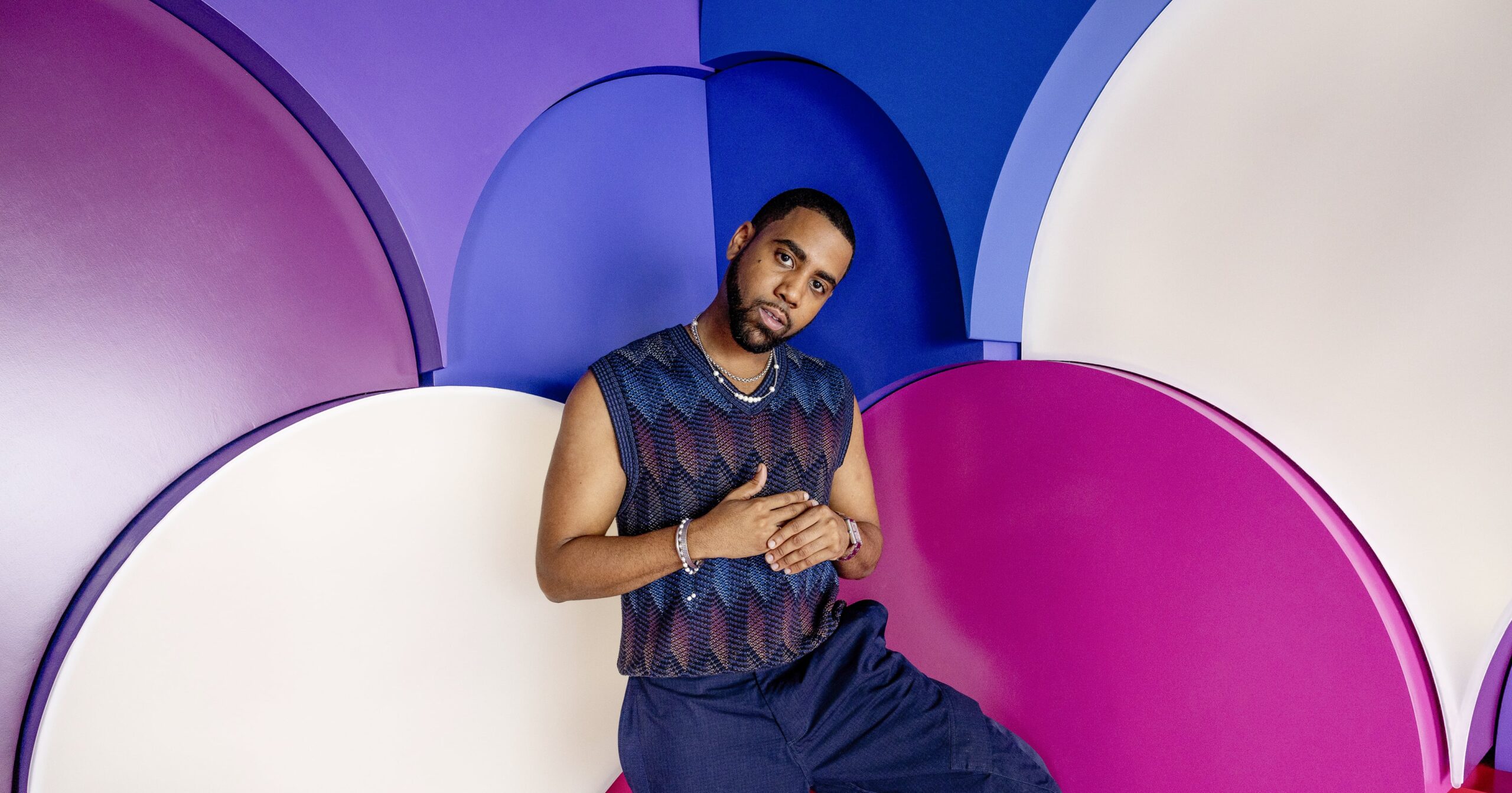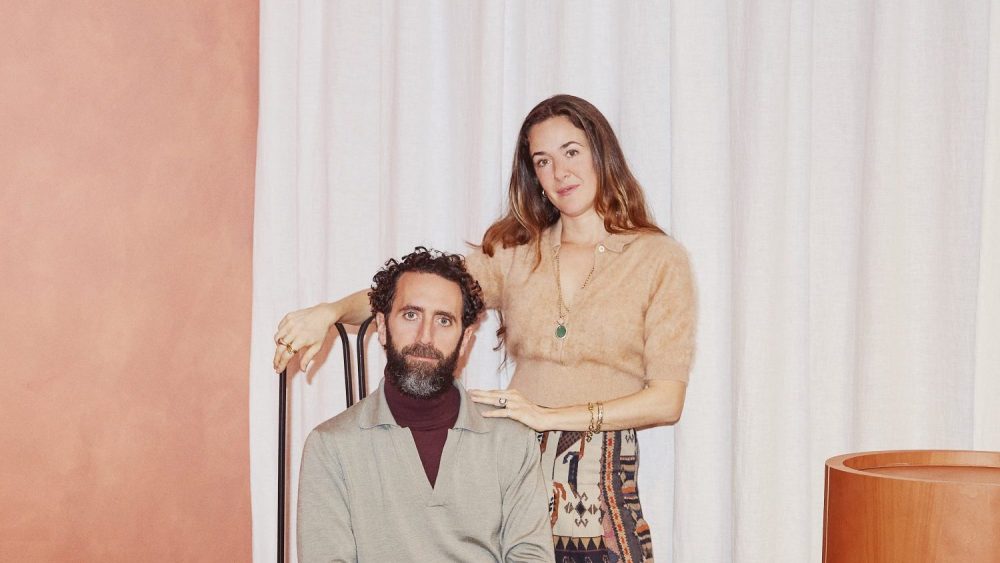This Latine Heritage Month, our Mi Historia series spotlights Latine celebs as they share how their families’ immigration stories shaped who they are – and why telling these stories is vital to empowering immigrant communities.
Jharrel Jerome is an undeniable star. Known for his raw, visceral performances in “When They See Us” and “Unstoppable,” as well as voicing Miles G. Morales in “Spiderman: Across the Spider-Verse,” the actor credits his mother for much of his success. He’s a first-generation Dominican American born in New York’s Washington Heights, a predominantly Dominican neighborhood, and raised in the Bronx by his single mother.
“My mom had me at 18, so I had a very young mom. That’s why we’re so close, and that’s why I keep her close to the heart and to the chest,” he shares. “We just grew up at the same time. . . . It’s like a best friend that I’ve had my whole life.”
As a young Dominican woman raising a child in NYC, Jerome’s mom, Radoyka Marte Jerome, devoted herself to providing him with the opportunities she never had.
“Between her being an immigrant and having me at a very young age, my mom is just so resilient,” he says. “More than her believing in herself, more than her believing in anything, she believed in me.”
That included encouraging Jerome to go to a performing arts school, which set him on the path he’s on today. “I just told her I didn’t want to go to my zone school. I didn’t want to go to school where all the kids in my neighborhood were going to school, and the next morning, she came up with this idea for me to audition for a performing arts school for acting,” he says. “She just knew I was dramatic.”
Until he was two, it was just him and his mom, until his stepdad eventually stepped in as the father figure in his life.
“I wasn’t raised by my biological father, so I don’t know my Dominican father. You know classic tale – classic story. It happens,” Jerome says. “But I was raised by an incredible man. He’s Haitian. He’s my stepdad. But I don’t call him my stepdad. I don’t view him as my stepdad. That’s my dad. I call him dad.”
Jerome believes it’s the unconditional love and support he’s received from his family – which includes his mom, stepdad, sister, grandparents, aunt, uncle, and cousins – that has truly kept him grounded in an industry as competitive and demanding as acting.
“I grew up very family-oriented, so that helped me a lot when it came to transitioning into this whole Hollywood thing,” he says. “To this day, I really appreciate that I have a home to go to and I have a strong home to hide or get away, even if it’s just to remember who I am. I’m proud of that. No matter what space I’m in or no matter who I meet, it won’t change who I am.”
“I grew up very family-oriented, so that helped me a lot when it came to transitioning into this whole Hollywood thing.”
The actor believes that growing up as a Black Dominican kid from the Bronx prepared him for many of the roles he’s taken on. His experiences have shaped his perspective – and ultimately allowed him to bring greater authenticity to his portrayals of Black characters.
“It’s a tricky conversation. Colorism is involved in that conversation, but I’m a Dominican who’s aware of our people and that line that they like to toe. I know the negative side of our culture and the side that hides from our Black identity, but I just ain’t that one,” he says. “I grew up first and foremost a Black man in this country, and walking in the streets, talking, auditioning, anything – I have never felt like I was anything but Afro-Latino, and so a lot of the characters I play are not Latino. They’re Black American.”
And while there’s been debate over whether Afro-Latinos should portray Black American characters, Jerome wants to make something clear: he is very much aware of the fact that he isn’t Black American – he’s Black Latino – and he recognizes the cultural differences that exist. But roles for Black Latinos are still scarce.
“There’s just not a lot of characters for us. We don’t get written about often, and if we do, America’s got this portrayal of what it means to be Latino, you know what I’m saying? And they haven’t broken that mode yet,” Jerome says. “I can’t identify with my Dominican heritage through my characters, but the blessing is that I can speak for my Blackness through my characters.”
He hopes to take on more roles like Anthony Robles, the Black and Mexican disabled wrestler he portrays in “Unstoppable.” In the meantime, he’s eager to share his own family’s immigration story and his experience growing up Dominican in the Bronx so that stories like his can finally be written for the screen. For the past two years, he’s been working on a script for a story similar to his own.
“I think right now, more than anything, immigrant stories need to be told so we can remind America of the importance of immigrants.”
“The motto of this country was freedom for all. The American dream was, ‘Come find a piece of freedom to follow your dreams here,'” Jerome says. “But it’s funny how now it’s like, nah, go back, and it’s sickening to me. I think right now, more than anything, immigrant stories need to be told so we can remind America of the importance of immigrants. We need to remind America of what America was built on.”
Johanna Ferreira is the content director for PS Juntos. With more than 10 years of experience, Johanna focuses on how intersectional identities are a central part of Latine culture. Previously, she spent close to three years as the deputy editor at HipLatina, and she has freelanced for numerous outlets including Refinery29, Oprah magazine, Allure, InStyle, and Well+Good. She has also moderated and spoken on numerous panels on Latine identity.



